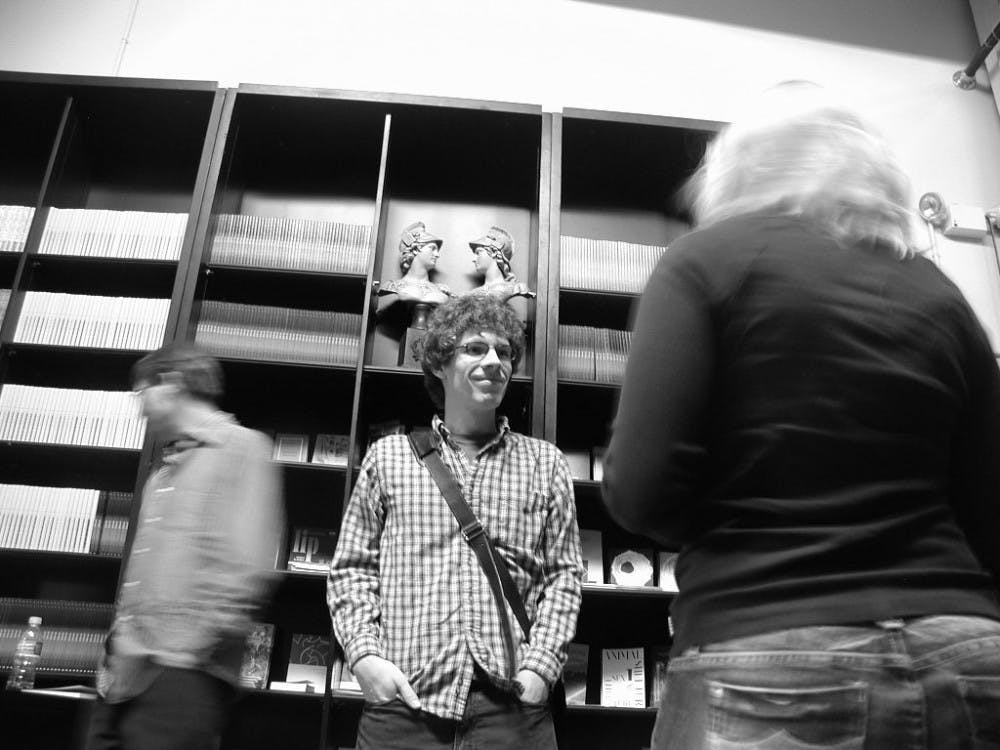On Wednesday night, Aaron Kunin read selections of his poetry as part of UB’s Poetics Plus program at Hallwalls Contemporary Arts Center in downtown Buffalo. Poets in the program are selected through votes by English department students and typically give a reading at UB’s Poetry Collection, Hallwalls or the Western New York Book Arts.
Kunin, an assistant professor at Pomona College in California, entered the poetry scene in the late 2000’s with his books “Folding Ruler Star” (2005) and “The Mandarin” (2008). Kunin’s poetry is notable for its emotional honesty and use of contrast and juxtaposition.
“How do you control a spirit?” Kunin asked the crowd. “Just as it controls you – temptation.”
The audience laughed at Kunin’s light-hearted poetry, but fell silent as the intensity of his work increased. Kunin’s performance was very calculated, with his uncanny ability to control the crowd.
Steve McCaffery, an English professor at UB and the David Gray Chair of Poetry and Letters, liked the performance, even though he said he wasn’t that familiar with some of the poet’s work.
Kunin is interested in how laughter breaks down boundaries between people. The poet addressed the phenomenon that people are more likely to laugh in a group, as opposed to when they’re by themselves.
“Different audiences laugh in the same place,” Kunin said.
Later, during the Q&A, Kunin talked about how his interest in laughter stems from his ideas between our sense of humor and immortality.
Besides laughter, another theme central to the poems read was the relationship between how one acts when they are with people and how they act when they are alone.
Kunin’s poetry is often so honest that it can come off as a little offensive.
At times, Kunin’s work delves into isolation and searching for love not in others, but elsewhere. For Kunin, poetry is one of the few places where someone can make their private life public and still be praised for it.
As the Q&A progressed, Kunin expressed why he also chooses to read the work of other poets in addition to his own work during the reading. The poets Kunin chose were his past mentors and people who he felt his writing emulated in one way or another. Some of the poems he chose to read by other authors were related to his own works.
Kunin talked about his old professor, Allen Grossman. Grossman is a poet and critic whose lyrical poetry combined philosophy, poetry and autobiography. His work is known for the vast amount of characters, idioms and unifying voice that brings everything together.
Grossman was an assistant English professor at Brandeis University and John Hopkins University in the late ’60s and early ’80s.
When speaking of the late Grossman who passed away last year, Kunin talked about going to his funeral and discovering how “everyone who knew him had a different way of channeling his voice,” but no one could do what Grossman did because “he didn’t teach anyone how to do what he did.”
Kunin ended the night by imitating his teacher and the crowd burst into laughter as the poet reminisced.
Alex Pennington is a staff writer and can be reached at arts@ubspectrum.com





